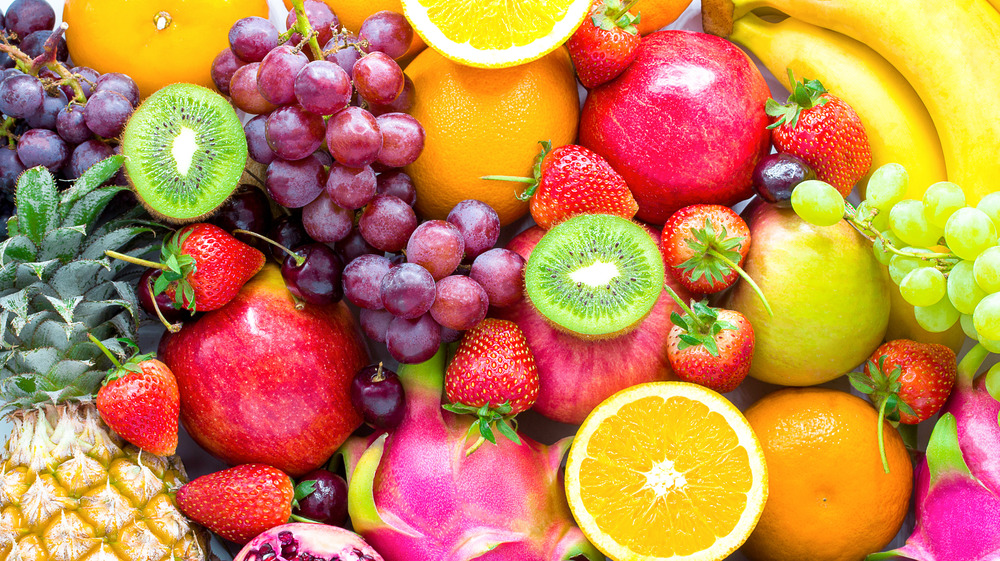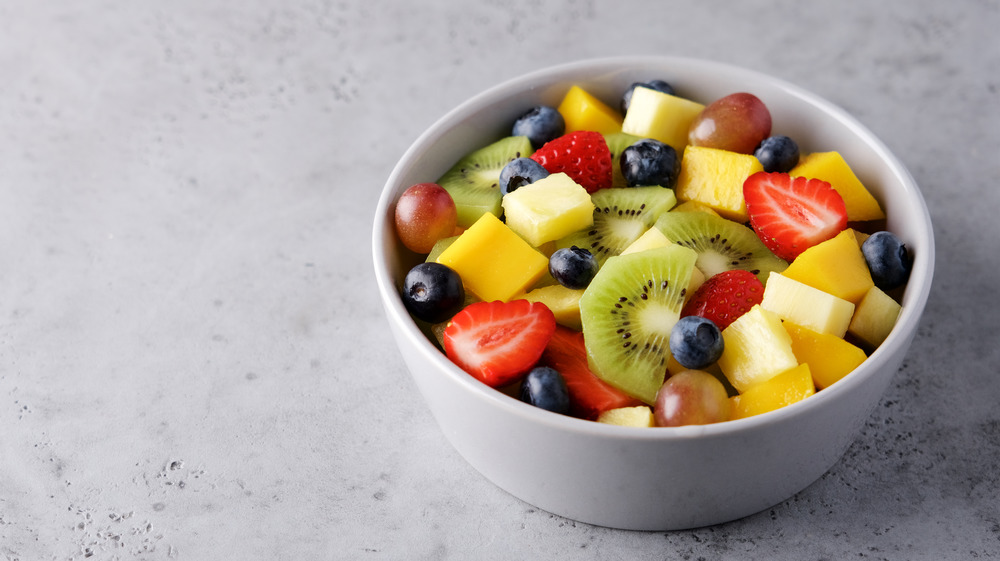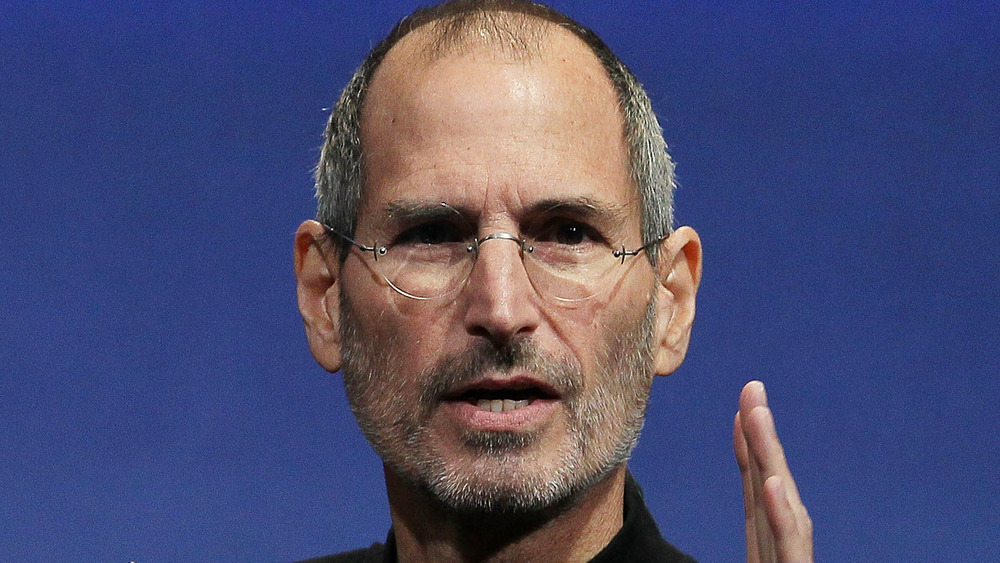What Makes The Fruitarian Diet So Concerning
We're sure you've heard that eating fruits and vegetables is good for you, but a fruitarian diet is something else entirely. Mashed spoke to Jamie Hickey, NASM, FMS certified trainer, ISSA certified nutritionist, and founder of Truism Fitness, to help us better understand this novel diet approach. Hickey explains, "There are different variations of fruitarianism, but the most popular method is to consume 75 percent raw fruits and 25 percent nuts, legumes, and seeds. Some people will add a vegan note to it or solely eat fruit that has fallen from a fruit tree and picked organically by a person."
That's right, some people choose to just eat fruit — no vegetables, no tofu, no dairy or eggs, and definitely no meat. You might wonder why some people make this choice.
Fruitarian fans laud the diet for its lack of processed chemicals, high water content, and aid in digestion, as well as the added benefit of eating until you feel full (via No Meat Athlete). One athlete, ultra-runner Michael Arnstein, says that since becoming a fruitarian his athletic skills have increase to give him a marathon time of 2 hours and 28 minutes and a 12 hour and 57-minute record for a 100-mile run (via Michael Arnstein). Of course, no matter what your diet, these are not typical athletic results and require extreme ability. In fact, according to Hickey, there are many potential risks associated with following a fruitarian diet.
Fruit is full of sugar
While some have found success, many experts warn of the long-term dangers of a fruitarian diet plan (via Verywell Fit). "This is a very restrictive and dangerous diet for many reasons," Jamie Hickey explains. "The main problem is that you will create a lot of nutrient deficiencies by only eating fruit. People following this diet generally have low levels of B12, calcium, vitamin D, iodine, and omega 3."
Those interested in consuming more fruit should also remember that fruit is high in sugars. While this isn't quite the same as consuming refined sugar, when you eat enough of it, the results will add up. Hickey continues, "Another problem that you can experience is from the extremely high amounts of sugar that fruit contain, this will be a huge problem if you're diabetic, or if you have pancreatic or kidney disorders. If you don't have diabetes, you will increase your chances of getting it." This high sugar content, plus the acids found in many fruits can also lead to the erosion of tooth enamel. Pineapples, for example, rate a 3 and 4 on the pH scale (via Healthline). A pH of 7 is neutral, so these tasty fruits tip pretty far in the acid direction.
Why the fruitarian diet isn't sustainable
"This is not a diet that will be sustainable for a long period of time, which means that any weight that you lose while on it will most likely be gained back," Hickey says. "A diet is about changing your lifestyle habits and replacing them with healthy sustainable options so that you can continue to be healthy as you grow older. This is also a very expensive diet since fruit is not cheap." The cost of this diet has led some to believe that fruitarianism can be done safely if a person spends enough money on quality ingredients. Unfortunately, that's just not the case.
"A prime example of this diet being unhealthy is that Steve Jobs loved this diet and when Ashton Kutcher was playing the role of Steve Jobs he wanted to also practice an all fruit diet and he ended up in the hospital due to it," Hickey shares. "This is a celebrity who has nutritionists and chefs making his diets for him and he still ended up being hospitalized." Kutcher explained experiencing severe health issues by following this diet just in the short term: "I was doubled over in pain, and my pancreas levels were completely out of whack, which was terrifying, considering everything," Kutcher reported (via U.S. News). Jobs himself died of pancreatic cancer in 2011.
Consult your medical provider if you need support making healthy nutrition choices. If you are struggling with an eating disorder, or know someone who is, help is available. Visit the National Eating Disorders Association (NEDA) website or contact NEDA's Live Helpline at 1-800-931-2237. You can also receive 24/7 Crisis Support via text (send NEDA to 741-741).


